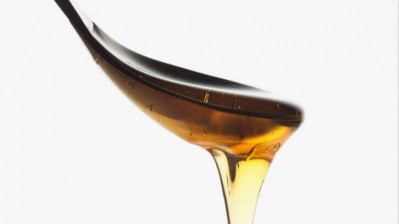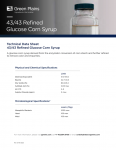Advertising allulose simply as ‘sugar’ is misleading, watchdog determines in case against Nutrishus Brands’ RxSugar

“It is well settled that scientific or technical definitions or regulatory classifications do not necessarily reflect how a term is commonly understood by consumers, and NAD has repeatedly held that consumers have a right to rely on a word’s ordinary meaning when used in consumer advertising,” NAD wrote in a decision published this month in which it reviewed claims made by Nutrishus Brands for its sweetener product RxSugar.
At the behest of the Sugar Association Inc., NAD considered whether the brand name RxSugar, along with select marketing claims, falsely conveyed the presence of sugar, or sucrose, in its product.
SAI argued that the name RxSugar “was literally false because the sweetener in the products so branded is not sucrose as the term is defined by the FDA or as it is ordinarily used,” according to the case decision.
Allulose is a rare sugar derived from fruit like figs or raisins or may be synthetically produced from corn, but unlike common table sugar, which is a disaccharide made up of fructose and glucose, it is a monosaccharide.
SAI added – and NAD agreed – that the word ‘sugar’ typically refers to common table sugar, or the disaccharide sucrose derived from sugar cane or sugar beets. NAD added this is reinforced in “numerous dictionaries, where sugar is defined as a unique substance, that substance is sucrose, e.g. table sugar,” from which “ordinary usage clearly flows.”
While NAD agreed “it is uncontroverted that allulose is a sugar,” it explained that because it reviews advertisements from the perspective of a “reasonable consumer” it must apply in its assessment the common definition of “sugar” as sucrose. As such, it dismissed Nutrishus Brands’ argument that the technical definition of sugar is “any of a class of water-soluble crystalline carbohydrates, including sucrose and lactose, having a characteristically sweet taste and classified as monosaccharides, disaccharides and trisaccharides.”
Further, NAD noted the product name does not appropriately qualify sugar, as is allowed for terms like ‘palm sugar,’ ‘coconut sugar’ or ‘maple sugar.
Finally, the watchdog argued, that several statements on the label, including “Sugar Reimagined” add to the “misimpression from the name such that it is not clear what the product actually is,” while back of pack claims describing allulose as a “plant-based sugar” are “too far removed to cure the messaging from the front label statements and the initial impression from the product name.”
With this in mind, NAD recommended that the name be modified – including qualifying the name to avoid conveying that RxSugar is or contains sugar.
Certifications must be clearly linked to with appropriate language
NAD also recommended Nutrishus discontinue or modify the claim RxSugar is a “plant-based certified sugar” because it was not clear from the advertising to which attribute the certification applied.
While the certification applied to the product’s status as plant-based, SAI argued – and again NAD agreed – that the grammatical structure of the phrase made it sound as if RxSugar was “certified sugar.”
According to the case, “SAI contended that the Supreme Court has recognized the importance of grammar in parsing the meaning of phrases and specifically discusses the ‘rule of the last antecedent’ in which a descriptive word or phrase ‘should ordinarily be read as modifying only the noun or phrase that [it] immediately follows.’”
NAD adds that the way the claim was delivered in a QVC video segment further obfuscated the term to which ‘certified’ related because the annunciation emphasized ‘real,’ ‘rare’ and ‘natural’ and therefore “there are no audible cues as to which term the word ‘certified’ relates.”
RxSugar does not convey prescription grade or status
While NAD sided with SAI on many of the claims it raised, the watchdog disagreed that the use of the term “Rx” in its brand name suggested products were prescription or prescription grade or that it implied they were healthier than regular sugar.
NAD explained that “as a threshold matter … because sugar (and other sweeteners) are not dispensed with a prescription, reasonable consumers would be unlikely to take away a prescription or prescription strength message from the name RxSugar.”
It also noted that the use of “Rx” in other food brand names, such as RxBar, suggests that Rx “can have a broader meaning.”
Nutrishus will amend advertising
Nutrishus agreed to “comply with NAD’s decision” in its advertisement statement, included in the decision.
It explained that it is “pleased to include additional information on its label and in its advertising so that there can be no mistake that RxSugar is not what is commonly known as ‘sugar’ (sucrose)” as it wants to clearly distinguish its products from sugar.





















